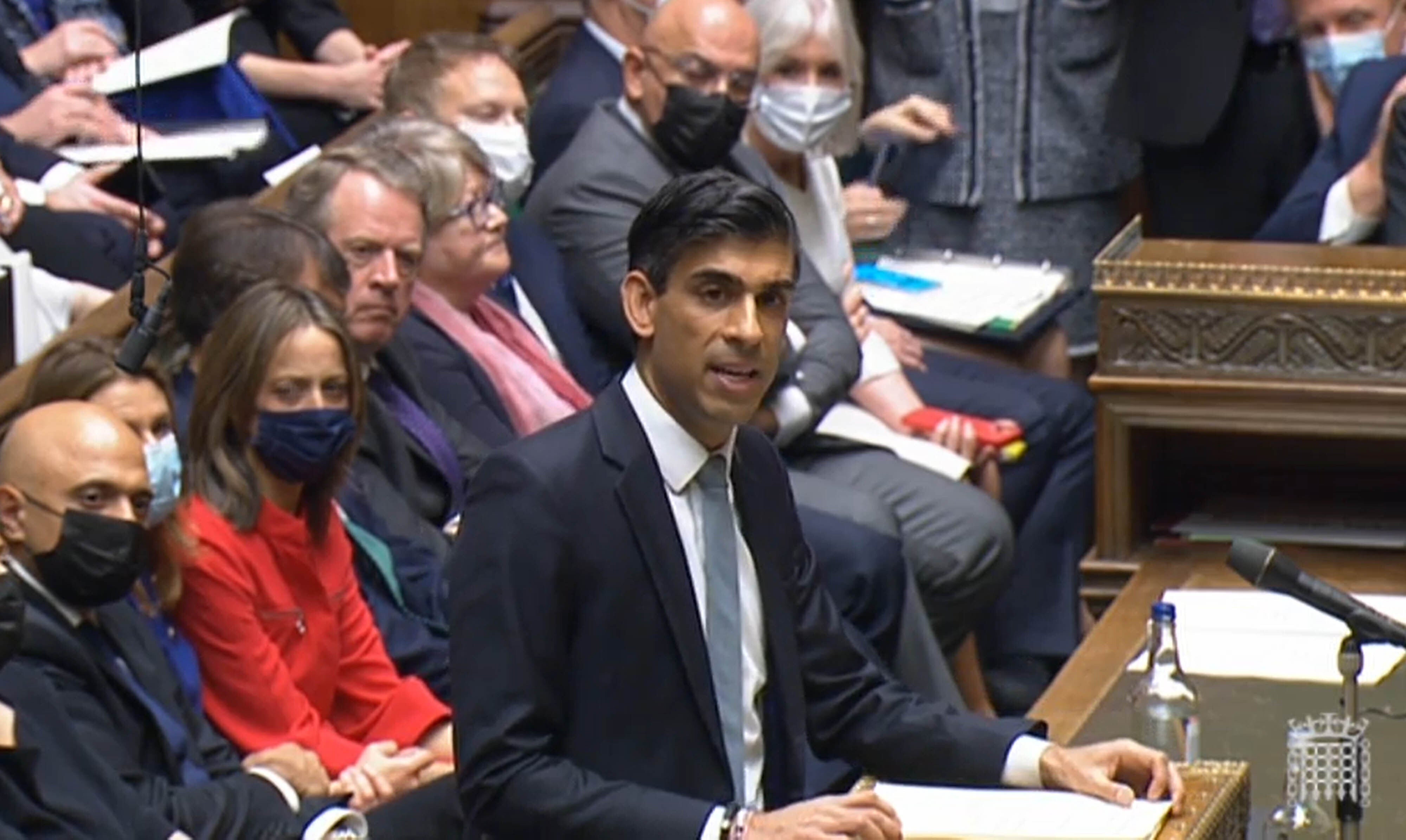Brexit mixed with Blairism is the new centre ground of British politics – and Rishi Sunak owns it
The Budget is proof that Boris Johnson and the chancellor have refounded New Labour, with a Brexit twist, writes John Rentoul


The autumn Budget was such a carbon copy of New Labour that it even had one of Tony Blair and Gordon Brown’s signature policies at its heart. Boris Johnson and Rishi Sunak put up national insurance contributions to pay for a step-change increase in NHS spending. That was in the real Budget in September, when the prime minister and the chancellor took the main decision on tax and spending. Today’s tidying up exercise dealt with a few of the leftover details.
When Eleanor Laing, the deputy speaker, opened proceedings by telling Sunak that “we are very much looking forward to hearing the remainder of your announcements”, she spoke truer than she knew. She was telling him off for pre-announcing so much of today’s statement, but the important business had already been announced and railroaded through the cabinet and parliament last month.
The centre ground of British politics can be a hazy concept. Some of the old maps locate it in quite the wrong place. It is not simply halfway between left and right, or else Jo Swinson really would be prime minister. The more accurate short description of it is Brexity Blairism: it means a relentless focus on delivering schools and hospitals first; it means moderate compassion combined with economic and fiscal realism; and since 2016, it means being positive about life outside the EU.
But if you wanted a longer description of the centre ground, Sunak supplied an hour-long version in his speech on Wednesday. He opened with a variation on “for the many not the few”, the Blairite slogan that was adopted by Jeremy Corbyn. “The awesome power of opportunity shouldn’t be available only to a wealthy few,” he said. It should be “the birthright of every child in an independent and prosperous United Kingdom”. Blairism, plus Brexit. And a bit more Brexit when he went on to reform alcohol taxation – “only possible because we’ve left the EU”.
He spent more on the NHS and schools, rounding up and double counting in ways that would make Gordon Brown blush. The NHS will get vast sums, topped up today to make them insignificantly vaster. Schools spending per pupil will go back to the level last seen in 2010, in effect admitting that the past 11 years have been a terrible mistake and that what we want to do is to pick up where Brown and Ed Balls (then secretary of state for children, schools and families) left off.
Boris Johnson at Prime Minister’s Questions referred to the New Labour period as the “13 lost years”, but that was just to put the cartographers in search of the centre ground off the track. As far as he and the chancellor are concerned, it was the nine years from 2010 to 2019 that were the lost years, when the government fell into error, austerity and Remainer heresy. Then in July 2019, a new government came in, and was confirmed in its true path of Brexity Blairism by the election of December that year.
Just to complete the picture, Sunak spent a fiddling amount on reinventing Sure Start. Family hubs, indeed.
In fact, so successful have Johnson and Sunak been in refounding New Labour that the chancellor has taken fright a little and deftly tried to correct his course towards the end of his speech, when he got to the lyrical bit of philosophising. This was easily the most interesting bit of a speech that largely consisted of reading out press releases from the last few days’ queue in the Treasury email-sending machine.
He said the state grew to account for half the economy during the pandemic, thanks to his furlough scheme and business support: “I don’t like it, but I cannot apologise for it – it’s the result of the unprecedented crisis we faced and the extraordinary action we took in response.” But now it is time for a rebalancing. Not just in the public finances, but in the government’s rhetoric. He may have gone too far in September, he now realised although he cannot say it, when he said that a “permanent new role for the government” – providing more help with the costs of social care – required a “permanent new way to fund it”.
So now he emphasised “that government has limits – that government should have limits”. He described this as a “moral” question: “Do we want to live in a country where the response to every question is: ‘What is the government going to do about it?’ Where every time prices rise, every time a company gets in trouble, every time some new challenge emerges, the answer is always: the taxpayer must pay?”
That is where the centre ground is: the government must do what it takes in a crisis, but then it must be responsible when it comes to paying for it. That is why the swipe at Rachel Reeves might have been effective. She wants to abolish business rates altogether without saying how she would make up the lost revenue. He said: “Reckless, unfunded promises to abolish a tax which raises £25bn every year are completely irresponsible.”
Reeves and Keir Starmer, watching proceedings from his splendid isolation (the fifth time he has been pinged), have a pretty good idea of where the centre ground is, but Johnson and Sunak got there first, and they are not moving off it – and they can do the Brexity bit of it better.



Join our commenting forum
Join thought-provoking conversations, follow other Independent readers and see their replies
Comments